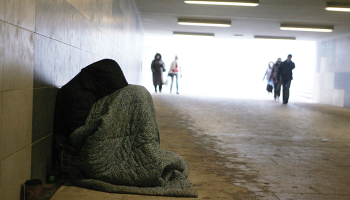
Foto: Kristīne Veinberga, F64
Movements or lack of them - worth mentioning
Latvia has now enjoyed (?) the euro for just over half a year and the latest, i.e. 2013, figures for GDP per capita are in. Time for a bit of reflection on both. The GDP numbers are shown below. Of course they don't change much on a yearly basis but there are still some movements - or lack thereof - worth mentioning.
Source: Eurostat
Relatively strong growth in recent years has pulled Latvia ahead of Hungary and who would have believed, in the early 1990s, that Hungary would be behind the Baltics and the rest of Central Europe? Latvia is still behind the two other Baltic countries. Nothing new there, but Lithuania is now for the second year in a row ahead of Estonia (and for this year IMF data agree).
What is worth observing here is that Poland, praised so often by Paul Krugman and others, is still behind our Baltic neighbours and just a tad ahead of Latvia.














